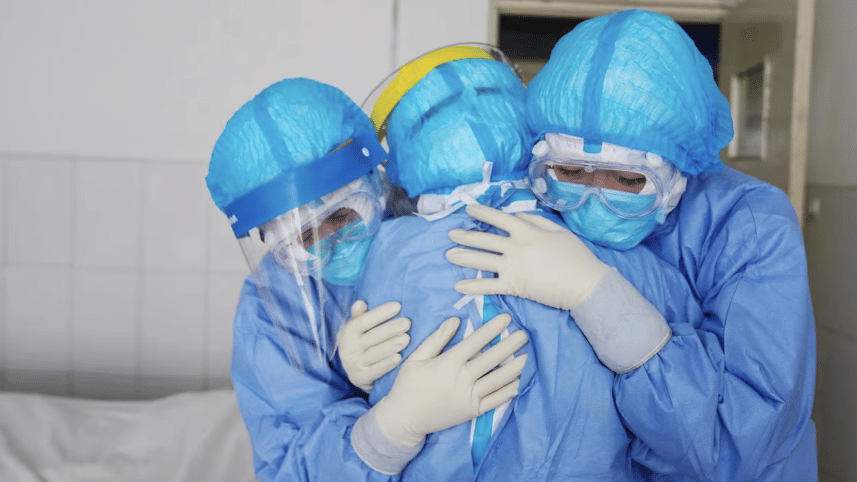Why more clinicians should join public health

As the dust has begun to settle on the global fight against Covid-19, new debates around strengthening public health systems are intensifying. Nations are evaluating their responses against the pandemic and delving into lessons learnt to reshape their public health infrastructure. Amid many fervent discussions, a bold and visionary idea is starting to emerge: more clinicians joining public health can fortify defence against future health emergencies.
Clinical health and public health are distinct yet overlap in many areas. Clinical health revolves around one-on-one patient care in the structured confines of hospitals and care settings, with healthcare professionals like doctors, nurses, and allied health workers at the forefront. In contrast, public health work involves tackling various underlying causes of diseases and focuses on a wide range of determinants of health in defined population cohorts to eradicate illnesses from communities. Public health acts as the first line of defence against widespread outbreaks and prioritises prevention over cure. Public health graduates and professionals dominate the workforce.
Studies show that a robust public health system neutralises a large-scale outbreak and reduces mortality rates. According to an analysis, countries like China and New Zealand boast of significantly lower rates of morbidity and mortality against Covid because of their strong public health infrastructure. The two countries experienced only 3.21 and 10.14 deaths per million, respectively. New Zealand's 1956 Health Act required health practitioners to report cases that posed a threat to the public, serving as one of the country's best measures to defeat the pandemic.
However, many countries also underperformed dismally. Peru and Bulgaria experienced a staggering number of losses with 6,133 and 4,766 deaths per million, respectively. These countries lacked adequate systems and guidelines. Bulgaria's healthcare system was seriously strained by the lack of staffing.
Unfortunately, evidence and data show that Covid-like phenomena are barely a hindsight. The Centers for Disease Control and Prevention in the United States has documented a multitude of outbreaks across the globe in recent years, indicating that more of these episodes are very likely. One analysis by the BBC concludes that contagious diseases will become the new normal for the world.
Given many predictions and dire warnings, nations across the world must prepare and bolster their public healthcare systems. And medical practitioners can play a vital role in accomplishing that goal.
First, by joining public health work, clinicians can strengthen the first line of defence against health emergencies. Public health work inherently involves creating awareness, providing health education, promoting healthy lifestyles, and organising vaccination campaigns, thereby eliminating root causes of diseases fast in communities. Hands-on experience of doctors and nurses in triage and treatment in emergency rooms, with their knowledge of chronic and acute care, can help public health agencies to mitigate the impact of health emergencies and natural disasters.
With profound knowledge of individualised care, medical professionals can bring invaluable insights into outreach and education programmes to fundamentally improve public health methodologies and practices. Rather than treating one patient at a time, they can have a population-level impact, improving even millions of lives. Dr Tom Frieden, who is a luminary in this field, explains why he has chosen public health over clinical practice, "I loved clinical practice, but in public health, you can impact more than one person at a time. The whole society is your patient."
Second, by working in public health, healthcare professionals can also enjoy a paramount opportunity to drive health equity deep into a nation's healthcare. As the first points of contact with patients in hospitals and care settings, physicians and nurses have intimate access to the patients' various social and economic needs, and an understanding of how these factors impact their lives and overall well-being. This puts them in an enviable place to tackle many socioeconomic drivers of health, which are at the core of promoting health equity.
Because of the importance of health justice and the pressing need for individuals that have direct knowledge of the patients' underlying social conditions, many public health agencies, government organisations, research firms, community health advocacy organisations, and non-profits in the US actively seek out healthcare professionals to join their ranks. Caregivers are seizing this opportunity to reshape the nation's healthcare landscape and promote equitable care for all, improving lives at all levels.
Last but not least, a public health system is inherently a multijurisdictional approach that promotes collective efforts from diverse disciplines such as epidemiology, biostatistics, social science, social work, and even medical science. Traditionally, medical graduates gravitate towards clinical care, highlighting a profound lack of medical knowledge in public health systems. In fact, with their first-hand training in patient care, healthcare professionals can vastly improve many critical public health tools such as surveillance, disease tracking, early intervention, disease reporting, and so forth.
Public health also offers healthcare providers a variety of personal and professional growth opportunities. They can enjoy the privilege to work alongside traditional public health professionals in a wide range of leadership and critical thinking domains such as research, programme management, policy development, promoting regulations and legislations, etc. Many physicians in the US work as health information technology specialists, research leads, and even data scientists. This directly exposes public health to medical experiences so critically needed in this sector.
In the post-Covid reality, medical practitioners should think more seriously about joining public health to better serve the bottom line of healthcare. They must break free from the confines of clinical settings to meet the challenges of the rapidly changing healthcare dynamics. The traditional approach to improving healthcare is akin to living in a bygone era that is divorced from reality. Keeping our eyes on the ball requires shifting our attention to where it is needed most.
ABM Uddin is a healthcare consultant for the Florida Agency for Health Care Administration. Views expressed in this article are the author's own.




 For all latest news, follow The Daily Star's Google News channel.
For all latest news, follow The Daily Star's Google News channel.
Comments